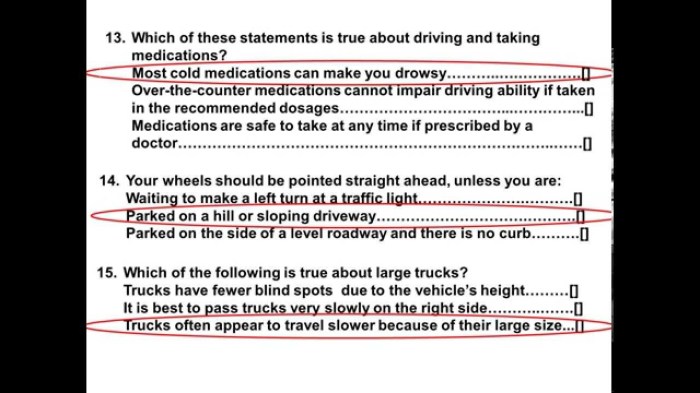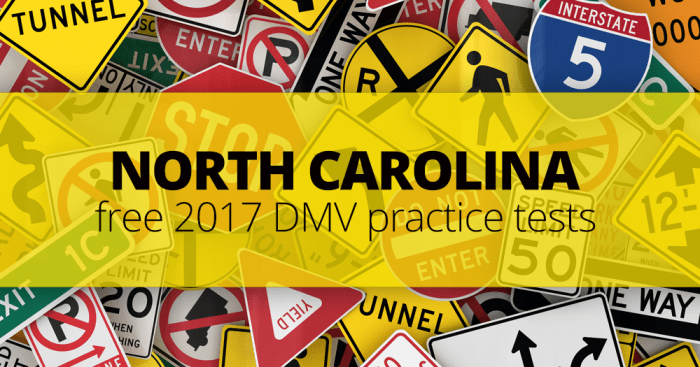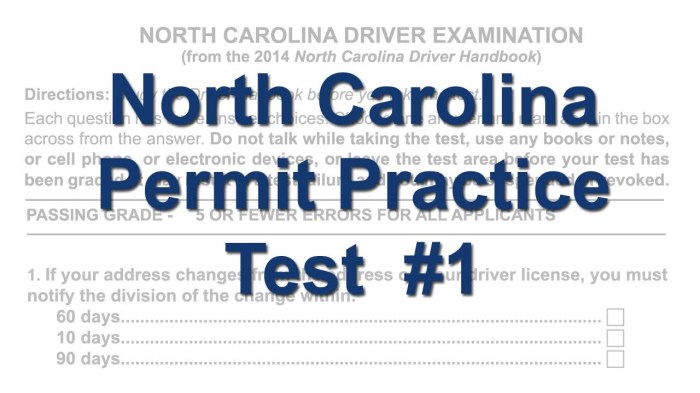Step into the driver’s seat of knowledge with our comprehensive guide to the NC Drivers Ed Final Exam. Whether you’re a first-time test-taker or seeking a refresher, this article will navigate you through the exam’s ins and outs, empowering you to conquer the road ahead.
Prepare to master the exam’s content, develop effective study strategies, and uncover insider tips for test-taking success. Buckle up and let’s shift into gear!
NC Drivers Ed Final Exam Overview
The NC Drivers Ed Final Exam is a comprehensive assessment designed to evaluate your knowledge and understanding of the principles and practices of safe driving. It is the culminating step in the North Carolina Driver Education Program and a mandatory requirement for obtaining a driver’s license.
To be eligible for the exam, you must have successfully completed an approved Driver Education course and have held a learner’s permit for at least six months. The exam is typically administered by the North Carolina Division of Motor Vehicles (DMV) and consists of two parts: a written test and a driving skills test.
Written Test
The written test assesses your knowledge of traffic laws, safe driving practices, and vehicle operation. It consists of multiple-choice questions covering topics such as:
- Traffic signs and signals
- Speed limits and right-of-way rules
- Defensive driving techniques
- Vehicle maintenance and safety features
Driving Skills Test
The driving skills test evaluates your ability to safely operate a motor vehicle. It is conducted by a DMV examiner and involves maneuvers such as:
- Starting and stopping
- Turning and lane changes
- Parallel parking
- Emergency maneuvers
Exam Content Analysis

The NC Drivers Ed Final Exam covers a comprehensive range of topics essential for safe and responsible driving. It assesses candidates’ knowledge of traffic laws, safe driving practices, vehicle operation, and defensive driving techniques.
The exam consists of multiple-choice questions, true/false questions, and short-answer questions. The questions are distributed across the following key sections:
- Traffic Laws and Regulations:This section tests candidates’ understanding of traffic signs, signals, speed limits, and other regulations.
- Safe Driving Practices:This section covers defensive driving techniques, hazard recognition, and proper vehicle handling in various situations.
- Vehicle Operation:This section assesses candidates’ knowledge of vehicle components, maintenance, and basic troubleshooting.
- Alcohol and Drug Impairment:This section educates candidates on the dangers of driving under the influence of alcohol or drugs.
Question Types, Nc drivers ed final exam
The NC Drivers Ed Final Exam includes a variety of question types:
- Multiple-Choice Questions:These questions present candidates with a stem and several answer choices. Candidates must select the best answer from the options provided.
- True/False Questions:These questions require candidates to determine whether a statement is true or false.
- Short-Answer Questions:These questions ask candidates to provide brief written responses to questions related to the exam content.
Difficulty Level
The NC Drivers Ed Final Exam is generally considered to be moderately difficult. The questions are designed to challenge candidates’ knowledge and understanding of the subject matter, but they are also accessible to those who have studied and prepared thoroughly.
Preparation Strategies
The key to success in the NC Drivers Ed Final Exam lies in thorough preparation. Employing effective study techniques, utilizing practice tests, and managing time and stress effectively are crucial.
Effective Study Techniques
Organize your study material, creating summaries, flashcards, or mind maps to reinforce concepts. Actively recall information by explaining it to yourself or teaching it to others. Take breaks to improve focus and retention.
Practice Tests and Simulations
Practice tests simulate the actual exam environment, familiarizing you with the question format and time constraints. They identify areas for improvement, allowing you to target specific topics for further study.
Time and Stress Management
Time management is essential during the exam. Allocate time wisely for each section, ensuring you attempt all questions. Manage stress by practicing relaxation techniques and maintaining a positive mindset.
Test-Taking Tips

Understanding the exam’s format and content is crucial for success. Familiarize yourself with the question types and time allocation to develop an effective test-taking strategy.
When answering multiple-choice questions, eliminate incorrect options first to narrow down your choices. For true/false questions, read carefully and look for absolute terms like “always” or “never.” For short answer questions, provide concise and relevant responses.
Time Management
Manage your time wisely. Allocate more time to challenging questions and use remaining time to review and check your answers.
Avoiding Common Mistakes
- Avoid making careless errors. Read questions attentively and answer accurately.
- Don’t second-guess yourself unnecessarily. Trust your initial instincts if you’re confident in your answer.
- Don’t leave any questions unanswered. Guess if you have to, as leaving a question blank awards zero points.
Scoring and Interpretation
The NC Drivers Ed Final Exam uses a scoring system to determine whether you have passed or failed the exam. To pass, you must score a minimum of 80% on the exam.
For those seeking to conquer the NC Driver’s Ed Final Exam, mastering the intricacies of vehicle operation is paramount. However, don’t forget to broaden your knowledge horizons by exploring ATI Lab Values 2023 PDF . This comprehensive resource offers invaluable insights into medical laboratory science, enhancing your understanding of essential clinical parameters.
By delving into both automotive expertise and healthcare knowledge, you’ll emerge as a well-rounded and capable individual ready to navigate the challenges of the road and beyond.
Your exam results will be provided to you after you have completed the exam. The results will include your score, as well as a breakdown of your performance on each section of the exam. This breakdown can help you identify areas where you need to improve your knowledge and skills.
Consequences of Failing the Exam
If you fail the NC Drivers Ed Final Exam, you will not be able to obtain your driver’s license. You will need to retake the exam and pass it before you can be issued a license.
Steps to Retake the Exam
If you fail the NC Drivers Ed Final Exam, you will need to contact your local DMV office to schedule a retake. You will need to pay a fee to retake the exam.
Additional Resources: Nc Drivers Ed Final Exam

Supplement your preparation with these valuable resources to enhance your knowledge and confidence.
Explore official websites, study guides, and practice materials tailored to the North Carolina Drivers Ed Final Exam. Additionally, find information about driver’s education programs and the process of obtaining a driver’s license after passing the exam.
Official Resources
- North Carolina Division of Motor Vehicles (DMV): https://www.ncdot.gov/dmv/
- NC Driver’s Manual: https://www.ncdot.gov/dmv/license-id/driver-education/drivers-manual/
- NC DMV Practice Tests: https://www.ncdot.gov/dmv/license-id/driver-education/practice-tests/
Study Guides and Practice Materials
- Aceable: https://www.aceable.com/nc-drivers-ed/
- DriversEd.com: https://www.driversed.com/north-carolina/
- DriversEdToGo: https://www.driversedtogo.com/north-carolina/
Driver’s Education Programs and Resources
- NC Public Schools Driver Education: https://www.dpi.nc.gov/students-families/student-safety/driver-education
- AAA Driver Education: https://driving.aaa.com/driver-education/north-carolina/
- National Safety Council Driver Education: https://www.nsc.org/home-safety/safety-topics/driving-safety/driver-education
Obtaining a Driver’s License
- After passing the NC Drivers Ed Final Exam, you must apply for a learner’s permit.
- Complete the required hours of supervised driving practice.
- Pass a road skills test at a DMV license office.
- Pay the necessary fees and provide proof of identity and residency.
Clarifying Questions
What is the eligibility criteria for taking the NC Drivers Ed Final Exam?
To be eligible, you must be at least 15 years old, have completed a state-approved driver education course, and possess a valid learner’s permit.
How long does the exam take?
The exam typically lasts around 50 minutes.
What is the passing score for the exam?
You must score at least 80% to pass the exam.
What happens if I fail the exam?
If you fail the exam, you will need to retake it. You have three attempts to pass the exam within a one-year period.
